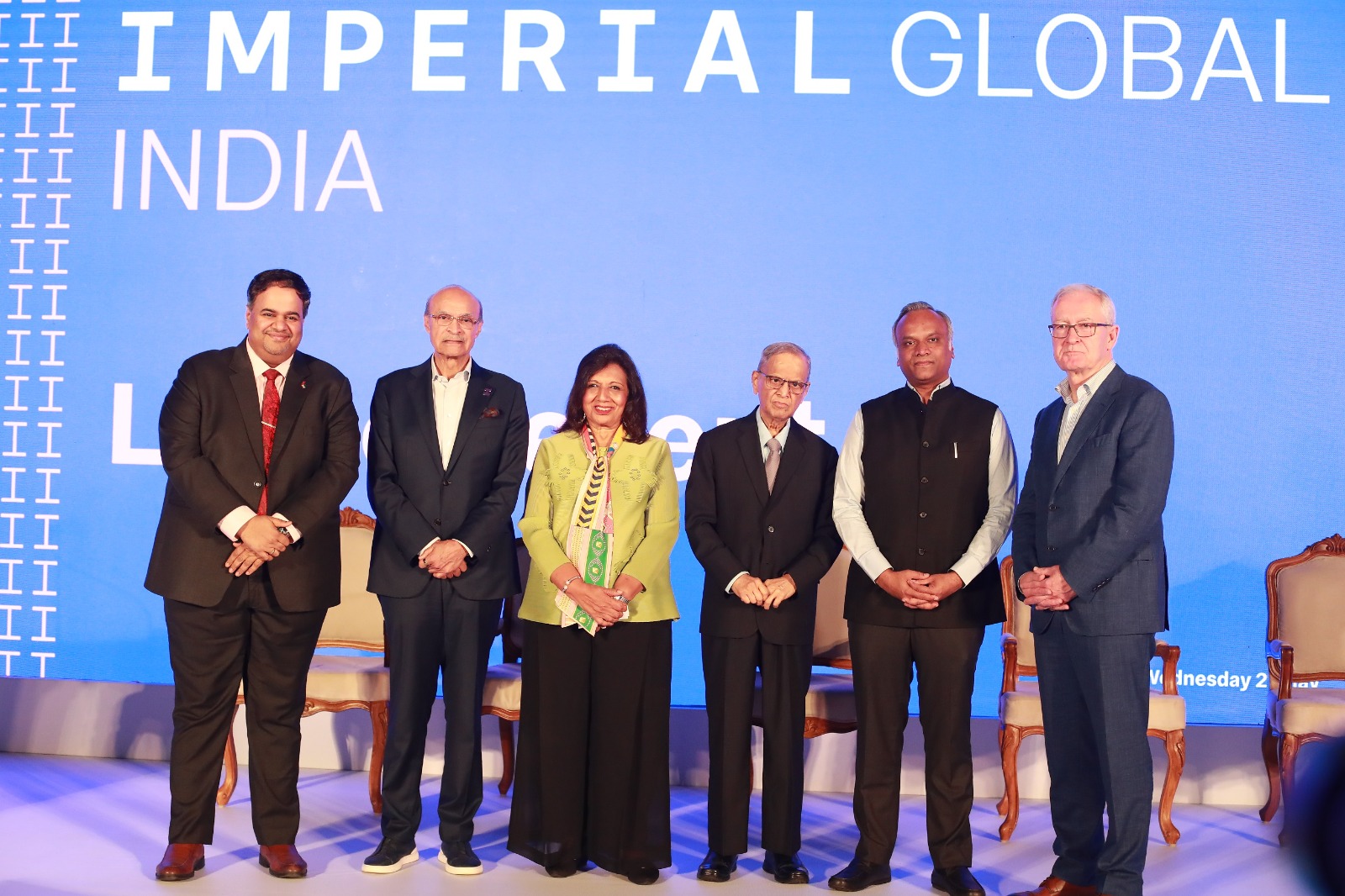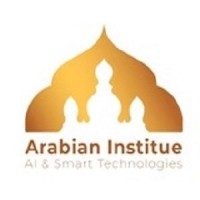- Harmony Clean Expands to Auckland with New Website Launch
- Gujarat CM and Health Minister Honor Dr. Bharat Agravat with Bharat Medical Excellence Award in Cosmetic and Implant Dentistry
- GRP Estates Unveils Comprehensive Suite of Real Estate Services
- Zone Syrups Introduces Three Game-Changing Flavours
- Galgotias University Among the World’s Leading Universities in QS Rankings 2026
- RPost Launches Cloud Platform to Power Secure, Legally Valid Communications
- BIT Mesra's Scientists Develop Smart Peptides That Respond to Body's pH – A Leap Toward Regenerative Medicine
- RX Japan Opens Exhibitor Registration for JAPAN BUILD Tokyo 2025, Aiming to Surpass 2024 Success
- Jem Cleaning and Property Maintenance LLC Launches Top-Rated Commercial Cleaning Services
- Bureau of Debt Settlement Expands Services for Debt Negotiation and Debt Settlement in Houston TX
- Artisticks Unveils Exquisite Brass Pooja Doors Through Its “Lakshna’s” Collection
- LEAPS AND BOUNDS Book Launch Celebrates Women’s Courage and the Power of Pursuing Passion
- New Study Shows EMDR-Based Mobile Apps May Reduce PTSD Symptoms and Comorbid Issues
- Vietjet Expands Global Ambitions with 100 Airbus Aircraft and 40 Rolls-Royce Engine Orders
- Onyx Executive Launches Bespoke Executive Career Coaching Services in Kent
 Mail to a Friend Mail to a Friend |
|
     |
Imperial College London to co-create world-leading science and technology research with Indian partners

One of the world’s top universities, Imperial College London, has launched its new science hub in Bengaluru.
Imperial says that research programmes with Indian partners will focus on helping to address some of the world’s most pressing challenges in areas such as climate change and sustainability, food and water security, and antimicrobial resistance (AMR).
The hub, Imperial Global India*, will strengthen partnerships between Imperial and leading universities and institutes in India, act as a communication channel to form closer ties with industry and policymakers, and provide a platform for greater collaboration in science and technology innovation between India and the UK.
Imperial has today announced that the hub, which is being established as a Liaison Office, will support joint research projects, long-term collaborations, student scholarships, collaborative PhD programmes and fellowships.
Imperial Global India has announced its first key initiatives:
The India Connect Fund will support up to 25 joint research projects every year between Imperial and partners in India in areas such as artificial intelligence, quantum science, biotech and clean energy.
The Future Leaders Scholarship is Imperial’s biggest ever scholarship programme for Indian scientists and will support 75 STEMB students over the next five years.
The establishment of six high-impact Eric and Wendy Schmidt AI in Science Global Faculty Fellowships with the National Centre for Biological Sciences and Indian Institute of Science to develop a London-Bengaluru AI in Science Network.
Investment in a Global Challenge Lab programme to bring together hundreds of UK and Indian students each year to jointly co-create innovative solutions to UN Sustainable Development Goals.
Investment in high-impact doctoral training networks in science and technology through a new collaborative PhD programme with the Indian Institute of Science, bringing together UK and Indian PhD students to work on joint research projects. This will be enhanced by a Global Fellows programme facilitating doctoral-level exchanges between leading laboratories in the UK and India.
The hub was formally launched at an event at the Science Gallery Bengaluru where India’s top business leaders, policymakers and scientists discussed ways to expand India-UK partnerships in science, technology and innovation.
Speakers included: N.R. Narayana Murthy, Founder – Infosys Limited; Kiran Mazumdar-Shaw, Chairperson, Biocon Group; Srinath Ravichandran, Cofounder & CEO, Agnikul Cosmos; Dr Anjana Badrinarayanan, Associate Professor at National Centre for Biological Sciences and Schmidt AI in Science Fellow; Vidit Aatrey, CEO and Founder, Meesho; Mr Priyank Kharge, Minister for Electronics, IT and Biotechnology, Government of Karnataka; and Dr M.C. Sudhakar, Honourable Minister for Higher Education, Government of Karnataka.
The event was hosted by Professor Hugh Brady, President of Imperial, Vindi Banga, Chair of Imperial’s Council, and Imperial Global India Academic Co-Directors Professor Sanjeev Gupta and Dr Elena Dieckmann.
Professor Hugh Brady, President of Imperial College London, said: “Our new science hub Imperial Global India will forge and strengthen links between Imperial and partners in India.
“Through the hub we will support several flagship programmes including research projects, long-term collaborations, student scholarships, collaborative PhD programmes and fellowships in areas such as telecoms, critical minerals, semiconductors, artificial intelligence, quantum, biotechnology and health-tech, and advanced materials.
“These initiatives will help deliver solutions to the world’s biggest challenges."
The hub is being led by Earth scientist Professor Sanjeev Gupta and biomaterials researcher Dr Elena Dieckmann.
Imperial is ranked second best university in the world and top in the UK in the latest QS World University rankings.
The UK and Indian governments share ambitions for deeper collaboration on science to drive economic growth, create skilled jobs and improve lives in the UK, India and worldwide.
Through the hub Imperial will seek to develop joint projects that leverage the best of UK and India science and innovation, whilst also engaging with joint government priorities in areas ranging from telecoms, critical minerals, semiconductors, artificial intelligence, quantum, biotechnology and health-tech, and advanced materials.
Imperial already has a strategic partnership with the Indian Institute of Science (IISc), Bangalore, that is supporting joint research projects in a range of scientific areas, as well as close links with the Indian Institutes of Technology (IIT).
Imperial academics are collaborating with partners from 400 Indian institutions across India.
Top collaborators include the Indian Institute of Science Bangalore (IISc), Christian Medical College Vellore, the All Indian Institute of Medical Sciences, IIT Bombay, and IIT Delhi.
Imperial also has a growing number of strong industry connections in India. Imperial and Tata Steel’s Centre for Innovation in Sustainable Design and Manufacturing is developing innovative new manufacturing processes to help decarbonise steel production.
Imperial Global
Imperial’s strategy, Science for Humanity, set out plans to establish a network of hubs in strategic global cities to amplify Imperial’s impact.
The network is building long-term collaborations with a diverse range of partners and stakeholders, fostering new high-impact partnerships with industry, government and knowledge organisations, and developing deeper links with alumni.
Imperial Global India will join the Imperial Global network of hubs in Singapore, San Francisco, USA and Accra, Ghana.
* Pending the completion of regulatory formalities to be able to set up our own liaison office, Imperial Global India will initially be managed by a service provider duly appointed by Imperial College London.
About Imperial College London
We are Imperial – a world-leading university for science, technology, engineering, medicine and business (STEMB), where scientific imagination leads to world-changing impact.
As a global top ten university in London, we use science to try to understand more of the universe and improve the lives of more people in it. Across our nine campuses and throughout our Imperial Global network, our 22,000 students, 8,000 staff, and partners work together on scientific discovery, innovation and entrepreneurship. Their work navigates some of the world’s toughest challenges in global health, climate change, AI, business leadership and more.
Founded in 1907, Imperial’s future builds on a distinguished past, having pioneered penicillin, holography and fibre optics. Today, Imperial combines exceptional teaching, world-class facilities and a habit of interdisciplinary practice to unlock scientific imagination.
About Professor Sanjeev Gupta
Professor Sanjeev Gupta is the Academic Co-Director of Imperial Global India and a Professor of Earth Sciences at Imperial’s Department of Earth Science and Engineering. A geologist by training, his primary research is in reconstructing environmental evolution on planetary surfaces. He studies modern landscapes to understand the environmental factors governing their form and analyses sedimentary rocks to decipher ancient landscape evolution.
His early research involved exploring the submerged landscapes of the English Channel using sonar data, which led to the discovery that catastrophic megafloods separated Britain from Europe, and explained how Britain became an island. Together with colleagues at the Indian Institute of Technology – Kanpur, he has worked on how rivers controlled early urbanisation in the Bronze-age Indus Civilisation and on quantitatively characterising groundwater resources and aquifer depletion in the Ganga basin, a major environmental issue in India.
He subsequently shifted research area to explore ancient environments and habitability on Mars. He is on the science teams and a Long Term Planner for NASA’s Mars Science Laboratory Curiosity and M2020 Perseverance rover missions. These studies have led to the discovery of the first in situ evidence for ancient rivers, deltas and lake systems at the martian surface. He is applying this experience to preparing for Europe’s first rover mission to Mars, the European Space Agency ExoMars Rosalind Franklin rover that will explore the Oxia Planum region of Mars.
About Dr Elena Dieckmann
Dr Elena Dieckmann is an Imperial researcher, entrepreneur and innovator specialising in sustainable material development. Her convergence science research approach focuses on the circular economy, deeptech translation and composite materials, and integrates material science and economic viability, leading to community-driven solutions.
She is a Lecturer at Imperial’s Dyson School of Design Engineering where she earned her PhD. She leads the MSc Cleantech Innovation programme and co-leads the Innovation Design Engineering MA/MSc with the Royal College of Art.
Her research and its industry applications have earned her widespread recognition, including winning the Innovate UK Women in Innovation Award in 2017 and being listed by Forbes as one of 30 Under 30 to watch in industry in 2018.
In collaboration with research partners at the Indian Institute of Science Bangalore (IISc), one of Dr Dieckmann's current projects involves developing solutions to tackle the growing global issue of decommissioned solar panels by repurposing them for use as architectural materials.
User :- Lakshman Babu
Email :-babu.lakshman@gmail.com











